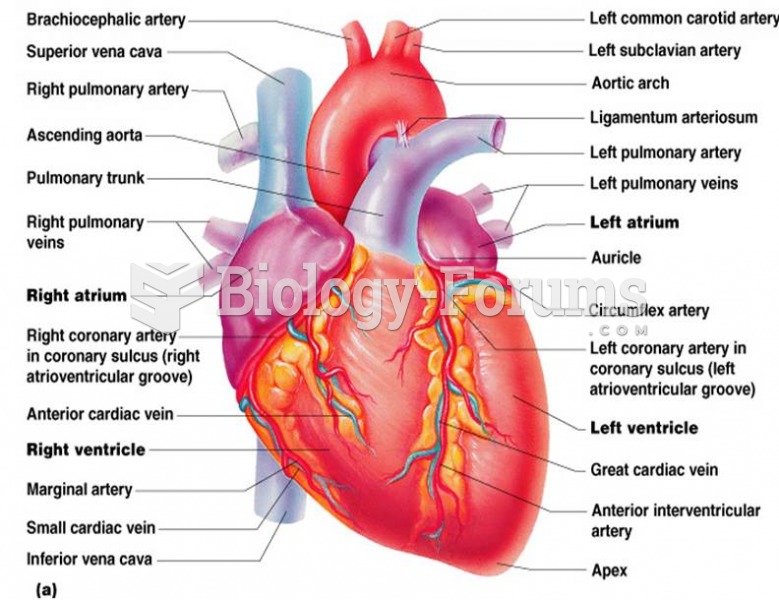|
|
|
The ratio of hydrogen atoms to oxygen in water (H2O) is 2:1.
More than nineteen million Americans carry the factor V gene that causes blood clots, pulmonary embolism, and heart disease.
In inpatient settings, adverse drug events account for an estimated one in three of all hospital adverse events. They affect approximately 2 million hospital stays every year, and prolong hospital stays by between one and five days.
Historic treatments for rheumatoid arthritis have included gold salts, acupuncture, a diet consisting of apples or rhubarb, nutmeg, nettles, bee venom, bracelets made of copper, prayer, rest, tooth extractions, fasting, honey, vitamins, insulin, snow collected on Christmas, magnets, and electric convulsion therapy.
The familiar sounds of your heart are made by the heart's valves as they open and close.






